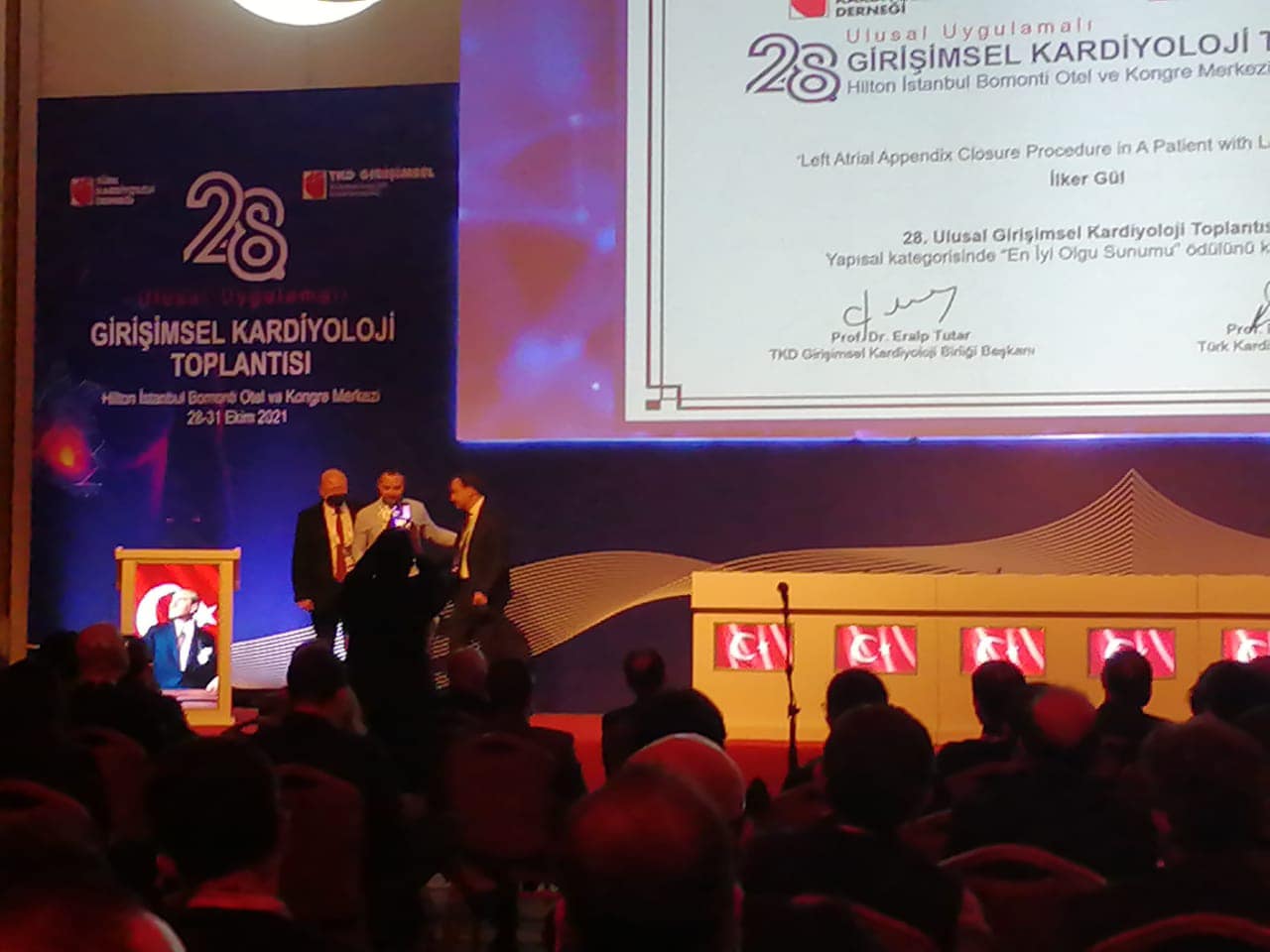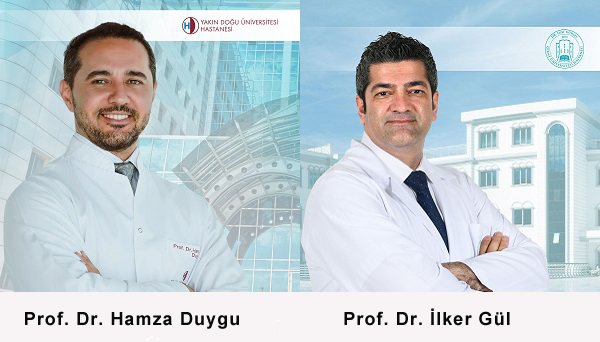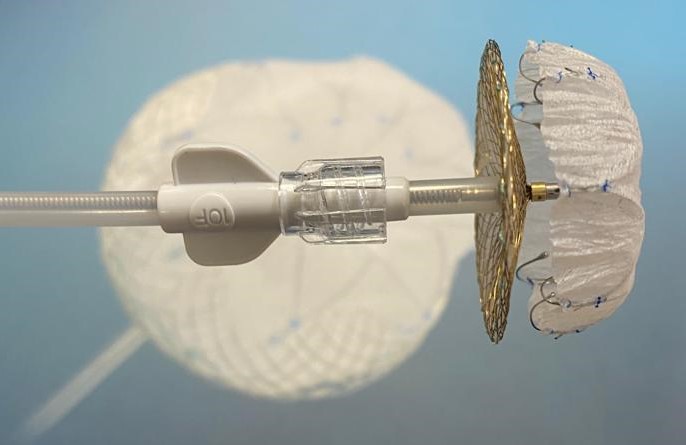
The Lambre Method, which was applied for the first time in Turkey and Cyprus last August at the Near East University Hospital, was developed by the Near East University Hospital brought the first prize to Near East University Hospital and Dr. Suat Günsel University of Kyrenia Hospital. The new technique, presented to the cardiology community at the 28th Interventional Cardiology Meeting held in Istanbul this year by the Turkish Society of Cardiology, became a glimmer of hope in the treatment of atrial fibrillation, which increases the risk of cerebral embolism, especially in patients over 65.

Near East University Hospital and Dr. Suat Günsel University of Kyrenia Hospital Cardiology Department Heads Prof. Dr. Hamza Duygu and Prof. Dr. İlker Gül received the grand prize in the field of structural heart diseases at the Interventional Cardiology Meeting.
Among the presentations of cardiologists from all over Turkey, the Lambre Method presentation by Prof. Dr. İlker Gül was deemed worthy of the first prize among all cases. The winner of the award was determined by the voting made by the professors who are regarded as an authority in their field and the leading specialist physicians of the entire cardiology community. The criteria that brought the award were the first occurrence of the case, the use of superior imaging techniques thanks to the hospital's technical infrastructure, and the quality of presentation.

The application, which took place for the first time at the Near East University Hospital, became an example in treatments of similar cases in Turkey.
Cardiac rhythm disorders are quite common among the cardiological complaints seen in the older age group. The incidence of atrial fibrillation, which causes irregular and usually rapid heart rhythm, is increasing, especially over the age of 65. The most important difference of atrial fibrillation from other heart rhythm disorders is that it can cause embolism in the brain in patients who cannot use blood thinners. The 83-year-old patient, who has been struggling with this problem for a long time and has recently had stomach bleeding due to the blood thinners he had used for heart rhythm disorder, was treated by Prof. Dr. Hamza Duygu, head of the Near East University Hospital Cardiology Department, and his team by using the Lambre method for the first time. The Lambre method can be life-saving for patients who cannot take blood thinners due to the risk of life-threatening bleeding and who are at risk of embolism and for whom standard medical devices are not suitable.